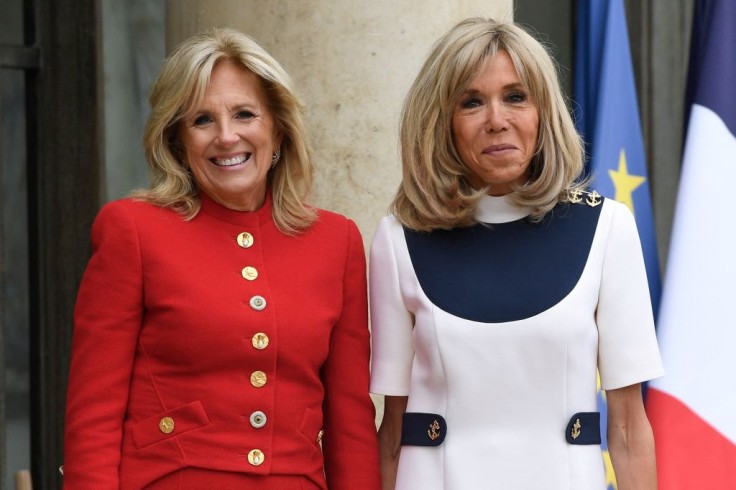
First Lady Jill Biden embarked on a historic trip to France, leading the United States' momentous return to UNESCO, the United Nations Educational, Scientific, and Cultural Organization.
After more than four years of absence, the U.S. formally rejoined the international organization, underscoring its commitment to global cooperation and strengthening ties with multilateral partners.
During her France trip, Jill Biden delivered a keynote address at a UNESCO ceremony, emphasizing the significance of working together on vital issues such as democracy, equality, and human rights and addressing the challenges of our time on the global stage.
The U.S. Returns To UNESCO
According to The Independent, in a remarkable step towards reestablishing the United States' presence on the international stage, First Lady Jill Biden played a pivotal role in celebrating the nation's return to UNESCO.
The U.S. had withdrawn from the organization in December 2018 during the Trump administration, citing concerns over an alleged anti-Israel bias and the need for fundamental reforms within the organization.
However, the Biden administration recognized that the absence from UNESCO had been detrimental to U.S. interests and acknowledged the organization's significant reforms during the hiatus.
With a renewed commitment to multilateralism and global engagement, the U.S. formally announced its decision to rejoin UNESCO in June and was readmitted shortly after, marking a milestone in international diplomacy.
During her France trip, Jill Biden delivered a powerful speech at a flag-raising ceremony in Paris, symbolizing the return of the United States to UNESCO.
The first lady highlighted the importance of addressing global challenges through collective action, stressing that isolating the nation would hinder progress on crucial issues.
While acknowledging the need to take care of U.S. citizens, she emphasized the value of active participation in the global community, advocating for values such as democracy, equality, and human rights.
This is not the first time that the U.S. has returned to the United Nations. According to the Los Angeles Times, during the Reagan administration in 1984, the United States decided to withdraw from UNESCO, citing concerns about the agency's mismanagement, corruption, and perceived alignment with Soviet interests.
However, the nation later reentered the organization in 2003, during the presidency of George W. Bush.
Read Also: Former Northwestern Football Player Files Lawsuit Over Detailed Allegations of Hazing, Negligence
Restoring U.S. Leadership and Cooperation
According to NBC News, senior Biden administration officials framed Jill Biden's visit to UNESCO as a crucial milestone in restoring U.S. leadership and cooperation within international organizations.
The decision to rejoin UNESCO, the United Nations Human Rights Council, and the Paris Agreement on climate change signaled a significant shift in the nation's foreign policy, signaling a commitment to tackle global challenges together with other nations.
By actively participating in these organizations, the U.S. aimed to push back against biases and unfair attacks while defending its allies abroad.
Jill Biden's itinerary in France also included visits to notable UNESCO world heritage sites like Mont-Saint-Michel, as well as the Brittany American Cemetery in Normandy, where she paid tribute to American service members who sacrificed their lives during World War II.
Additionally, the first lady met with France's first lady, Brigitte Macron, fostering diplomatic ties between the two nations.
The U.S. has reaffirmed its commitment to various priorities within UNESCO, including investments in Holocaust education, the preservation of cultural heritage in Ukraine, ensuring journalists' safety, and promoting STEM education for women and girls in Africa.
As the first lady's trip to France concluded, the significance of the U.S. returning to UNESCO resonated with global partners, reinforcing the nation's position as an advocate for international cooperation and addressing shared challenges.